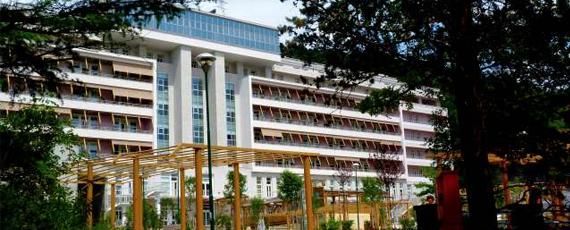FIRSTORM, Modeling First-Order Mott Transitions, is an ERC project (Advanced Grant n. 692670).
Mott insulators are “unsuccessful metals”, where conduction is impeded by strong Coulomb repulsion. Their use in microelectronics started to be seriously considered in the 1990s, when first reports of field-effect switches appeared. These attempts were motivated by the expectation that the dielectric breakdown in Mott insulators could suddenly release all formerly localized carriers, a significant potential for nanometer scaling.
Over the very last years striking experimental data on narrow-gap Mott insulators have finally materialized that expectation disclosing an unprecedented scenario where the metal phase actually stabilized was only metastable at equilibrium, which foreshadows exciting potential applications. These new data call for a theoretical understanding so far missing. In fact, the conventional portrait of Mott insulators has overlooked that Mott transitions are mostly 1st order, implying insulator-metal coexistence, which is often quite extended.
As a result, bias or light may nucleate long-lived metastable metal/insulator droplets within the stable insulator/metal phase, as indeed seen in several experiments.
The unexpected 1st order nature of dielectric breakdown in Mott insulators and its poorly explored but important conceptual and practical consequences are the scope of the theoretical project FIRSTORM.
Specifically, the project aims to model known Mott insulators and identify the variety of mechanisms (Coulomb exchange, lattice distortions) that support and boost the 1st order character of the Mott transition; and to explore insulator-metal coexistence as well as associated novel non-equilibrium phenomena, such as those related to nucleation.



